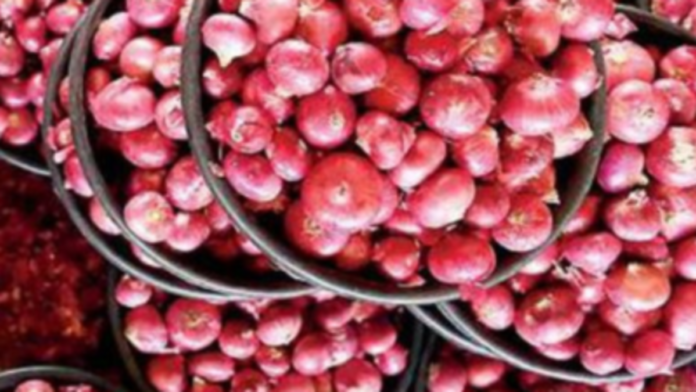Farmer Yogesh Gotekar, 52, appears anxious as he waits at the Vinchur market in Nashik with his truck with 12 quintals of onions. “Today is the final day to enroll my daughter in a pharmacy course. She will lose her spot if I don’t pay the fees by five o’clock. My children will not work in agriculture since it is a never-ending battle. Nobody really gives a damn about farmers. In the midst of nonstop calls from home on Tuesday afternoon, Gotekar tells News18, “I want them to choose a great profession.
The big Lasalgaon market, Asia’s largest onion market, was closed on Monday and Tuesday, so the Nashiki farmer went to the nearby, smaller Vinchur market. Onions and other seasonal vegetables are produced at Gotekar. “Now, I hold only six acres of farmland. I had to sell two acres as onions prices were on decline over the past two years . Most of the times, the money we earn doesn’t even cover our initial investment. To harvest a new crop, I had to sell my land,” he explains.
Onion traders of Nashik have called for a ‘bandh’ to protest against the Central government’s decision to impose 40% export duty on onions. Traders feel 40% export duty is high and hence are keeping all Agricultural Produce Market Committees (APMC) in the district shut.
For all of Asia, onion prices are set by the Lasalgaon market. From this market, traders send onions to Bangladesh, Sri Lanka, Afghanistan, Saudi Arabia, Dubai, and occasionally Pakistan through other nations. Concerns have been raised by the traders concerning their onions, which are now in transit and will be delivered to other nations in the coming days.
“We are not against export duty, but 40% is very high, especially when the market is down. Also, why were we not taken into confidence while taking this decision? They could have given us some time. There is no clarity on how much export duty will have to be paid on onions which have been sent to ports and are in transit. In case the government asks us to pay 40% on the onions we purchased on Friday and sent to ports, we will have to bear heavy losses. Also, if the government continues to impose 40% tax, the prices of onion will go down as many traders won’t send onions to other countries, which will increase the stock in the country. The prices of onions will go down and farmers won’t get a good price for their produce,” said Vijay Bafana, president of Onions Traders association.
Nasik Collector met with traders on Tuesday to learn about their issues. The collector told them that he will bring their complaints to the state authority even though nothing significant came out of the discussion.
Meanwhile, as the meeting was underway, the Central government announced its plan to purchase 2 lakh metric tonnes of onions from farmers of Maharashtra via the National Agricultural Cooperative Marketing Federation of India Ltd. (NAFED) at a rate of Rs 2,410/quintal.
The ruling has not brought about any relief, as marginal farmers claim NAFED will not buy their goods because of their stringent requirements. Because they inspect the size and quality, marginal farmers—who produce inferior onions compared to large and wealthy farmers—don’t profit from it.
For their onions, farmers also demand a price between Rs 3,000 and 4,000 per quintal.
Vasant Kadam, 65, a native of the Nashik area who has been producing onions for 35 years in the Vinchur market, said they cannot afford to sell at NAFED rates at a time when the market is experiencing a downturn. “A trader has not yet arrived at Vinchur Market, where I am waiting. I’m hoping someone will show up later,” he says.
Kadam had gone to Lasalgaon market in the morning, where he got to know that market is shut.
“Onion is a perishable product, you can’t store it for too long. We have to discard 50% of our produce anyway as it rots. If someone is taking onions directly from our farm land, we can sell those for Rs 10-11/ kg, but when we sort the onions and bring it to the market at our expense, how can we survive on such low rates?”
Kadam believes that the government should cut tax rates and only increase duties if demand increases.
In addition to objecting to the export tax, the All Indian Kisan Sabha also objected to the decision to only buy 2 lakh metric tonnes of onions at a cost of Rs 2,410. “Imposing a 40% export tariff and purchasing 2 lakh metric tonnes are not remedies when farmers in Maharashtra have 40 lakh metric tonnes of onions left. According to Dr. Ajit Navale of the All Indian Kisan Sabha, the Central government should first eliminate the 40% export tax before implementing measures like government buying of onions.




